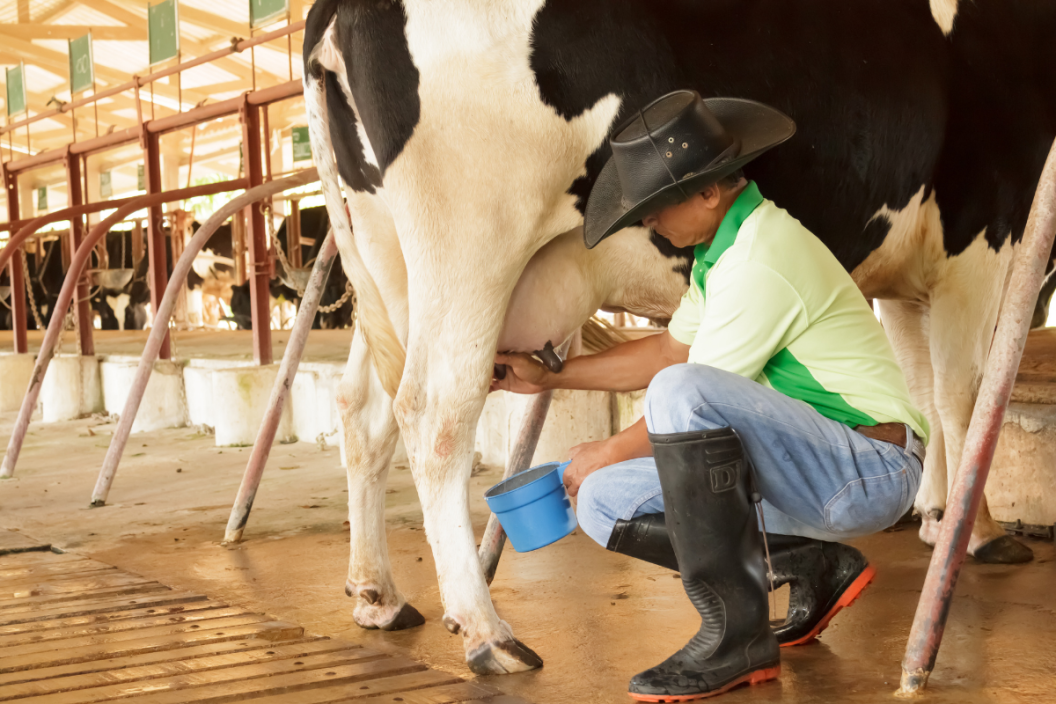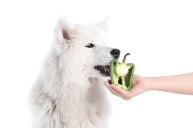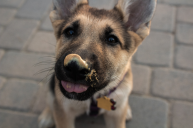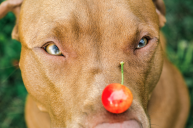How does cow udder care promote overall health?
Of course we all want our beef cows to be happy and healthy Clean environments, healthy nutrition, and socialization help cattle stay in good health. However, for dairy cows, udder health also has tremendous commercial implications as well. Healthy cow udders produce more milk, are easier to milk, provide better for nursing calves, and are a good test for overall health in terms of lifespan and beef production.
Cow Udder Health
https://www.instagram.com/p/BVu7HMfDI9q/
General hygiene habits are the first step towards proper udder care. This is important for all beef cattle, including steers, heifers, and suckling calves. Make sure you are keeping your cows' hooves trimmed, giving them a full-body bath once a week, and maintaining clean and dry living environments.
Additionally, the Beef Improvement Federation created a two-score system for evaluating udder health, based on udder suspension and teat size — They cite that, "Cows with good udder quality not only take less labor but also may have improved longevity due to lower incidence of mastitis or injury." Using their scoring system, you will be able to create a quick checklist of which cows are more susceptible to what types of health issues due to their udder score.
Potential Cow Udder Health Issues
https://www.instagram.com/p/BUawhCmjy8l/
The first health issue to watch for is clinical mastitis. Mastitis is a bacterial infection that causes inflammation of the mammary glands and is the most common udder problem during lactation. This udder infection typically happens due to poor udder care, and causes inflammation, blocked teats, pain or sensitivity in the area, swelling, and loss of appetite. In most cases, changes do not occur in either milk or milk production, which can make it difficult to diagnose without carefully observing your dairy cows' behavior.
The second major health issue to look out for is injury. Cow udders can easily be scratched or bruised as they collide with their hooves or other external objects. Since they are lower to the ground, low-hanging teats are especially vulnerable. Prevention, as with all medical protocols, is more successful than cure. For example, being careful about where your heifers wander can prevent them from inadvertently scraping against rough vegetation, and keeping your cow's hooves well-trimmed will keep them from scratching their own udders. Furthermore, treat any udder damage as soon as possible, whether it is scratching, rashes ("udder scald" happens when the udder rubs against the thigh and is similar to a yeast infection), or bruising.
Proper Cow Udder Care
https://www.instagram.com/p/BzyFaZKhzis/
- Before you milk your cow, clean her udder with water and a disinfectant such as iodine.
- Dry the teats and udder with a paper towel; throw away the towel after you are finished and do not reuse on another cow to prevent contamination.
- Check your cow's teats for blockages or sores that need immediate treatment.
- If you are hand milking, wash and disinfect your hands before and after.
- If you are using a milking machine, such as in a milking parlor at a dairy farm, disinfect the machine, especially the teat cups, before and after and dry with a paper towel. Do not reuse paper towels after drying.
Share your best udder care tips with us on the Wide Open Pets Facebook page!




